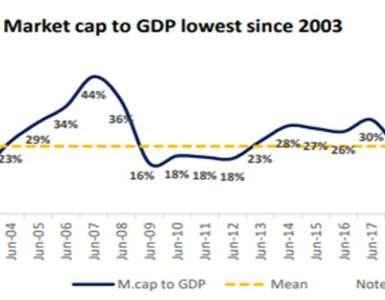Financial Planning Tips For Every Generation : Forbes
Your journey toward financial freedom and a comfortable retirement should begin early. But each age group has different goals and challenges. Grant Webster, a portfolio manager with Dowling & Yahnke in San Diego, tells us what to do and when:
Financial planning should happen at every age—whether it’s playing with your budgeting app in a college dorm room, or teaching your grandkids how to save, give and spend money. Thoughtful financial planning and smart money moves can make a huge difference in whether or not you will have a comfortable retirement.
Below are two financial tips for every generation—for those just starting out in their careers—to those enjoying their first year of financial independence.
Young Professionals (Under 40)
In this stage of your life, both good and bad habits are formed. Many financial mistakes are made, but with the right knowledge, you can build a solid foundation for a prosperous financial life.
1. Understand and master your credit. Building a solid credit score takes time and due diligence. Understanding the components of your credit score will be vital for your long-term credit health. Good or bad credit practices will follow you the rest of your life—and it will be difficult to qualify for a good mortgage or car loan without good credit. Below are the six main components of your credit score
Your available credit. This is how much credit you have available to you, compared to how much you are using. You typically want to have a lot of available credit and little in use.
Your payment history. Just one or two late payments can have a very negative effect on your credit score.
Derogatory remarks. This includes any bankruptcies, foreclosures, or collections on an account. Even one derogatory remark can destroy your credit for a long period of time. If you are late or delinquent on rent or utilities, this can generally show up here and have a potentially negative effect.

Establishing credit is a vital first step for you as you set out in the world and form a family. Shutterstock
Credit history. All things being equal, a longer credit history is better than a shorter one.
Number of accounts. Contrary to popular belief, having one credit card may not be better for your score than having multiple.
Credit inquiries. A “hard credit inquiry” is when a financial company checks your credit to approve or deny credit to you. Multiple hard credit inquiries in a short period of time can affect your score adversely. The lenders may think you are desperate for credit.
2. Invest early and often. It is somewhat of a cliché to say, but time is very much on your side when you are young. You have many years for your proverbial “money snowball” to roll and grow.
Here is an example of how saving early will pay off in the long run. Starting to save at age 25 instead of age 35, can translate to hundreds of thousands more in retirement savings: $326,353 at age 65, vs. $142,768. Those two savings scenarios assume that you save $100 a month, with an 8% annual return
Mid-Career (ages 40 to 55)
In this stage of life, we are typically experiencing rising salaries—and also rising expenses. Many major life events occur during this time period (home purchases, children’s college expenses, career changes, etc.).
1. Protect your family with insurance. As you enter your high earning years, don’t forget to protect yourself and your family in case something happens to you. If you have debt and high earnings, you will likely want to explore life insurance and potentially disability insurance. If you have a mortgage, unfunded college expenses, and are the solo provider of income for your family, how will they go on financially if you were to pass away or become disabled?
Review your auto, home (or renter’s), and disability insurance policies. The younger and healthier you are, the easier (and generally less expensive) it is to secure insurance.
2. Save like you’ve never saved before. You may be underestimating how much money you will need in retirement. Just think of how much money you will need to eat in retirement. For two people, we can reasonably expect to spend at least half a million dollars in retirement, just on food.
Additionally, try to avoid “lifestyle creep” during this phase of your life. Lifestyle creep is when expenses rise when your income rises. Some people find that they have doubled their incomes, but have also double their expenses, saving very little along the way.
Late Career (55 to Retirement)
In this stage of life, kids have typically left the home and we are in the final stages of retirement planning. This is when many families realize they are very much behind in their retirement savings.
1. Update your financial plan and make any necessary adjustments. How much will you spend in retirement? Where will you live? How much will you have saved by then? Would potential long-term healthcare expenses reduce your asset base to a level in which you’re unable to achieve your goals?
Consider doing a retirement drill. Being retired is like being unemployed for 30 years. People are living much longer today than they were just a decade ago. Be prepared for a longer than expected retirement.
2. Don’t get too conservative with your investments. You may very well live to be over 100. For many people, it does not make sense to become very conservatively invested before you retire. You will have many years in which you need your money to work for you.
Think about inflation and how your expenses will rise in retirement. How much did it cost to go see a movie when you were 16 years old? How about now? Inflation and longevity are why we need to keep investing a portion of the portfolio in stocks.
In Retirement
1. Stay disciplined, track your spending, and map out your future income. Costs will fluctuate; portfolios will rise and fall. Be sure to follow a tax-efficient withdrawal strategy that coordinates distributions from tax-deferred and taxable assets. Taking too much money from a tax-deferred account (like an IRA) can mean a big tax headache come April. Also, do your due diligence when choosing when to take Social Security benefits. You are typically eligible to begin benefits at age 62—but doing so will mean a lower amount for the rest of your life. Talk to your financial advisor to determine the optimal strategy for your specific situation.
2. Keep your estate plan and beneficiaries updated. Nobody wants the government to take control of our assets when we pass away. Review your will, living trust, and power of attorney documents to ensure your wealth transfer goals will be achieved. Nobody likes to plan for their death, but your family and loved ones will be glad you took the time to prepare.
Writtter : Grant Webster
Grant Webster is a portfolio manager at Dowling & Yahnke in San Diego, Calif











Add comment